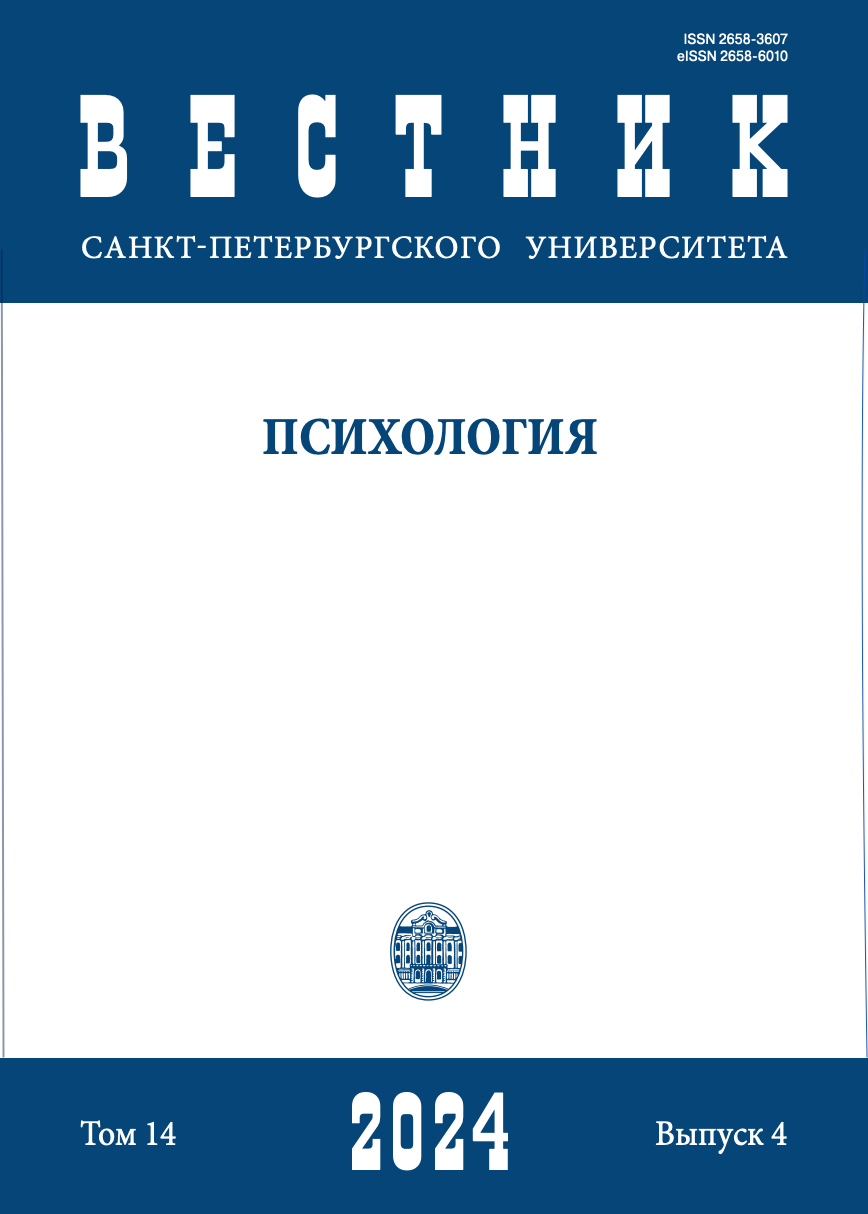Emotional state and illness perception of patients with cardiac rhythm disorders during preparation for fast-track surgical treatment
DOI:
https://doi.org/10.21638/spbu16.2024.403Abstract
The relevance of the study is determined by the need to study the emotional state and illness perception of patients with cardiac arrhythmias in order to determine the main guidelines of psychological preparation for high-tech cardiac surgery and of psychological support in the early postoperative period. The study sample consisted of 77 patients with cardiac rhythm disorders (mean age 57.09 ± 13.6 years; 44.2 % male) referred for fast-track radiofrequency ablation during their brief hospital stay. Patients’ emotional state, illness perception and their relationship were studied by means of a structured interview, a questionnaire for the physician and three psychometric methods (Depression, Anxiety and Stress Scale DASS-21, Perceived Stress Scale PSS-10, Brief Illness Perception Questionnaire BIPQ). The results of the study showed a predominance of anxiety symptoms in the structure of patients’ emotional state compared to depression symptoms, as well as higher values of the scales of anxiety (p = 0.000), stress (p = 0.000), general index (p = 0.001) of the DASS-21 and the stress index (p = 0.000) of the PSS-10 compared to normative data. The cognitive, emotional, motivational and behavioural components of illness perception were studied. It was revealed that the majority of patients have a fairly clear idea of their disease and the upcoming surgery, while awareness of the course of the postoperative period is insufficient in the vast majority of patients (83.1 %), which gives a reference point for preparing patients for surgery. In the structure of illness perception, the highest relevance is given to the scores of the BIPQ scales “Concern” and “Understanding”. Correlation analysis revealed relationships between the indicators of negative emotional states (depression, anxiety, stress) and the indicators of the BIPQ scales included in the factor “Perception of threat of illness”. In the preoperative period, a high level of adherence to drug therapy and a significantly lower level of adherence to a recommended lifestyle was found. Prospects for an observational study of the psychological status of patients after surgery are outlined.
Keywords:
cardiac rhythm disorders, cardiac surgery, depression, anxiety, emotional stress, illness perception, treatment adherence
Downloads
References
References
Downloads
Published
How to Cite
Issue
Section
License
Articles of "Vestnik of Saint Petersburg University. Psychology" are open access distributed under the terms of the License Agreement with Saint Petersburg State University, which permits to the authors unrestricted distribution and self-archiving free of charge.




